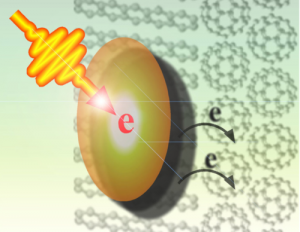by Ovidiu Sandru
A team of scientists at the University of Cambridge have developed a new kind of solar cell which uses a phenomenon called “singlet exciton fission” to extract two electrons with the energy of a single photon hitting the semiconductor. Currently available silicon solar cells can only extract one electron, so this would give solar cells a 25 percent boost in efficiency.
Cambridge’s new solar cell has been named “hybrid,” and its creators say it’s able to achieve a 44 percent efficiency, 10 percent higher than what the most cutting edge technology can, 34 percent.

 Follow
Follow